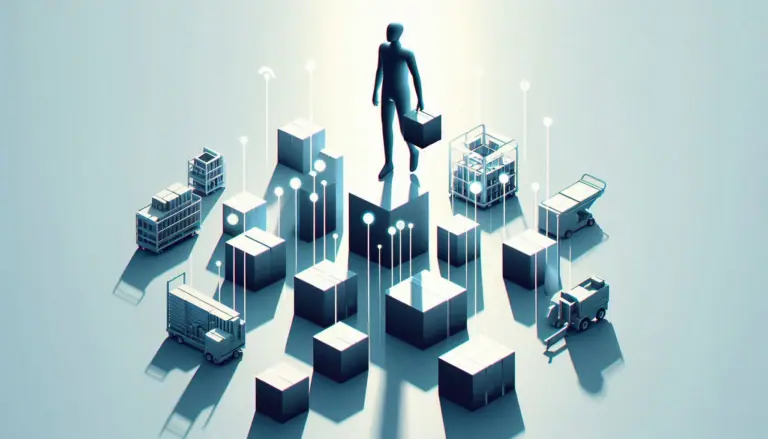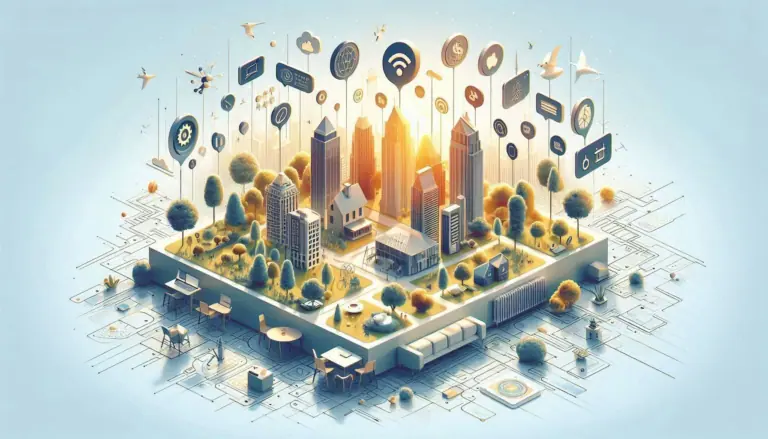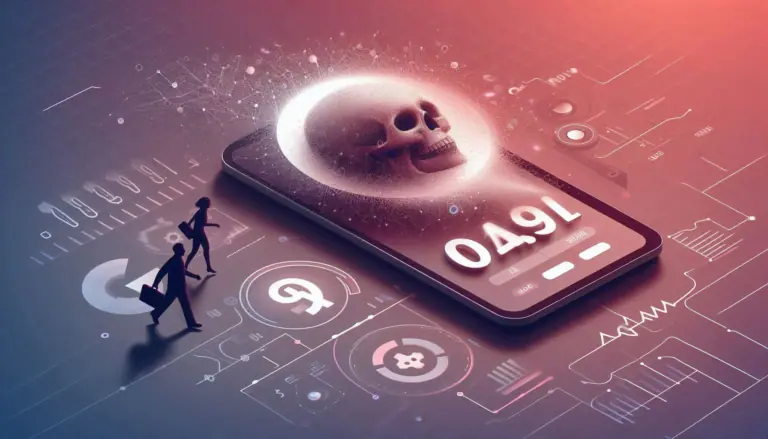AI in Hospitality Industry: Advancements and Benefits

Written By:
Last Updated Date:
TL;DR
AI is changing hospitality industry by enhancing efficiency and personalization. The Grand Horizon Hotel’s AI-powered chatbot “Grace” streamlined check-ins and personalized guest experiences. Predictive analytics optimized pricing and maintenance, boosting satisfaction and revenue, earning the hotel a Global Hospitality Award for innovation.
AI technologies are being used as digital assistants. They help businesses in many ways, including improving customer service, expanding operational capability, and lowering costs.
Key Takeaways
- Enhanced Guest Experience: AI-powered chatbot “Grace” at the Grand Horizon Hotel streamlined check-ins and personalized guest interactions, making guests feel valued and reducing wait times.
- Operational Efficiency: Predictive analytics helped optimize room pricing and maintenance schedules, preventing issues before they arise and ensuring smooth operations.
- Increased Revenue and Recognition: The hotel’s adoption of AI boosted guest satisfaction and loyalty and increased revenue, earning them the prestigious Global Hospitality Award for innovation.
Revolutionizing Hospitality: The Power of AI

Today, the hospitality industry constantly seeks innovative ways to enhance guest experiences, streamline operations, and stay competitive. AI in the hospitality industry is a game-changer transforming hotel and resort operations. Let’s dive into how AI reshapes hospitality, making it more intelligent, efficient, and guest-centric.
A New Dawn at the Grand Horizon Hotel
Sarah Thompson, the Grand Horizon Hotel General Manager in New York City, faced a challenge. The hotel, known for its luxury and long-standing reputation, struggled to meet modern guest expectations. Long check-in queues, delayed services, and a lack of personalization were becoming common complaints.
One evening, Sarah read a guest’s feedback, which hit hard, highlighting the importance of guest feedback in understanding and improving guest satisfaction. A loyal guest mentioned feeling “lost in the crowd,” missing the personalized touch the hotel once had.
Determined to turn things around, Sarah began exploring solutions and discovered the potential of Artificial Intelligence (AI).
The Transformation
Sarah decided to implement AI at the hotel, starting with an AI-powered chatbot named “Grace.” Grace handled check-ins, answered queries, and provided personalized recommendations 24/7. Guests loved the efficiency, and long queues at the reception disappeared. This implementation helped the hotel exceed guest expectations by providing a seamless and personalized experience.
Next, Sarah introduced AI-driven predictive analytics. This allowed the hotel to forecast demand, adjust room rates dynamically, and optimize staff schedules. The hotel also used AI for predictive maintenance, preventing equipment failures before they happened and enhancing security through AI-driven surveillance.
The Impact
The results were remarkable. Guest satisfaction soared as Grace remembered preferences like favorite room types and meals, making every stay memorable. AI also helped elevate customer service standards by responding quickly and efficiently to guest needs.
Operational efficiency improved, allowing staff to focus on creating memorable guest interactions. The hotel’s revenue increased due to optimized pricing and increased loyalty. One year later, the Grand Horizon Hotel received the Global Hospitality Award for Innovation, highlighting its success in integrating AI.
The Future
Sarah’s journey at the Grand Horizon Hotel shows how AI can transform the hospitality industry. From enhancing guest experiences to streamlining operations, AI is a game-changer. As technology evolves, the possibilities for AI in hospitality are endless.
The international hospitality and tourism is one of the world’s largest and fastest-growing industry. Globally, it brings in US$7.6tn and creates 292 million jobs, which accounts for almost 10% of the global GDP and one out of ten jobs, with the expectation to provide more jobs in the coming years due to its projected steady growth.
Benefits of Using AI in the Hospitality Industry

Revolutionizing Hospitality with AI and Big Data
The hospitality industry leverages AI and big data analytics to enhance guest experiences, streamline operations, and stay competitive. AI-powered chatbots facilitate seamless check-in processes and provide 24/7 customer support, offering personalized recommendations based on guest preferences.
The hospitality industry, especially the hotel business, is data-intensive and collects massive amounts of data in various forms. And that helps with a more personalized guest experience by using more accurate data collection.
Additionally, big data analytics, including the analysis of historical data, play a crucial role in understanding and improving guest experiences by analyzing user-generated content, such as online reviews and guest-to-staff interactions, to gain valuable insights into guest satisfaction.
Luckily, with the advancement of AI. Some businesses can adapt to changing environments. They transform and expand their services to meet the needs and expectations of their customers. Although using AI and robots is essential, automation is more likely to give you a competitive advantage by making customers happy with your service.
Enhancing Guest Experience
Imagine arriving at a hotel after a long flight and being greeted by a friendly AI-powered chatbot that handles your check-in within seconds. No more long waits at the reception desk.
AI chatbots provide 24/7 customer support, answering queries, making reservations, and offering personalized recommendations based on guest preferences. Virtual assistants enhance this experience by providing instant assistance, controlling room amenities, and offering insightful suggestions.
Additionally, big data analytics significantly enhance guest experiences by analyzing online reviews and interactions, providing deeper insights into their satisfaction and needs. Combining AI and data analytics makes guest interactions smoother and more personalized.
Having an integrated smart ecosystem in a hotel allows all of these different aspects of the operation to run more smoothly because interconnectivity provides more accurate data, one of the most valuable assets in the hospitality industry.
Personalized Services
AI takes personalization to the next level. By analyzing data from previous stays, AI can predict a guest’s preferences, a particular room type, favorite meals, or preferred check-in times. This level of customization enhances the guest experience, builds loyalty, and encourages repeat visits.
Personalized services make guests feel valued and understood, fostering a strong connection with the brand. Additionally, data analysis further enhances service personalization and overall satisfaction by understanding and predicting customer needs.
Robots can provide information to the guests, supply amenities like food or drink from the kitchens, and potentially accept payment for stays or upgrades.
A touch screen in their room equipped with a user-friendly interface could allow them to change the brightness or temperature, access a help and services menu, and more, giving them more power to have precisely the stay they are looking for.
Predictive Analytics for Smarter Decisions
Hotels generate vast amounts of data daily, and AI uses predictive analytics to turn this data into actionable insights. For example, by analyzing booking patterns, AI can forecast demand and adjust room rates dynamically.
This ensures optimal pricing strategies, maximizing revenue while staying competitive. Additionally, AI helps identify trends in guest preferences, allowing hotels to customize services and offers, which enhances overall guest satisfaction.
When you know what your customers need and have a good experience, they will return and recommend your business to others to try the service they enjoyed. With the help of AI, you will get perfect recommendations for advancing your business to the next level, and also you will get more revenue.
Streamlined Operations with AI
AI isn’t just about enhancing the guest experience. It’s also about making hotel operations more efficient. Automated check-in and check-out processes reduce human error and allow staff to focus on more critical tasks.
Predictive maintenance helps prevent equipment failures by identifying potential issues before they escalate, saving costs, and ensuring a seamless guest experience. AI also helps reduce food waste by forecasting guest mealtime preferences and optimizing restaurant operations.
Additionally, AI optimizes staff scheduling and inventory management, further improving efficiency and the overall smooth running of hotel operations.
Some examples of the hospitality industry’s growth in this field include chatbots, delivery robots, robot concierges, conveyor restaurants, self-service information, check-in and check-out kiosks, and many others.
Moreover, the Hospitality industry has implemented many systems to advance the process, such as property management systems, revenue management systems, and customer relationship management, to synthesize key performance indicators.
However, there are still many instances where operation owners are concerned about whether the guests will still prefer the human aspect of the hotel experience.
In Russia, young adults have been shown to regard robots as acceptable for handling information, food, and payment. However, the guests still don’t trust them to provide guarding or massaging services.
To make it clear. AI still won’t replace humans until now, but it’s a tool that will help them become more productive. Also, it will help work on many tasks through enhanced hotel and tourism operations and management systems, making the hospitality industry more intelligent.
Tailored Marketing Campaigns with AI
Effective marketing is crucial in the hospitality industry, and AI helps create personalized marketing campaigns that resonate with target audiences. AI can identify trends and preferences by analyzing guest data, allowing hotels to send targeted promotions and offers.
This precision increases the likelihood of conversions and enhances marketing ROI. AI-driven marketing strategies can adapt to real-time data, making campaigns more refined and impactful.
Enhancing Security and Fraud Prevention
In today’s world, security is a top priority, and AI significantly enhances hotel safety measures. AI systems can detect unusual patterns and flag potential security threats, ensuring a safe environment for guests.
AI helps prevent fraud by identifying suspicious activities in real-time, protecting both the guests and the business. By monitoring transactions and behaviors, AI reduces the risk of fraud and enhances overall security, making the hotel environment safer and more secure for everyone.
Having a secure system is so important to keep it going. By applying security measures, you can get away from any fraud or exposing the security of guests.
Success Stories in the Hospitality Industry

The integration of AI in the hospitality industry has led to numerous success stories, enhancing guest experiences, optimizing operations, and offering personalized services. Here are some real-world examples with insights:
Zoku Amsterdam
Zoku leverages AI-driven data analytics to analyze guest preferences and optimize room layouts and amenities. AI-driven dynamic pricing ensures competitive rates and maximizes occupancy, enhancing guest satisfaction and loyalty.
Hotel Sky, South Africa
Hotel Sky has integrated AI-powered robots to assist with guest services, such as check-in and room service delivery. These robots improve operational efficiency by handling routine tasks, allowing staff to focus on personalized interactions.
The Montcalm Hotel Group, London
Montcalm uses AI to deliver personalized marketing campaigns. By analyzing guest data, AI tailors offer individual preferences, increasing engagement and booking rates.
AI also helps collect and analyze guest reviews, providing valuable insights for improving services and enhancing guest satisfaction. AI-driven chatbots also handle customer service queries, improving response times and guest satisfaction.
Charme & Cheveux, France
This luxury hotel uses AI for predictive maintenance and energy management. AI monitors equipment and predicts maintenance needs, reducing operational costs and minimizing downtime, ensuring a seamless experience for guests.
Such AI-driven innovations are becoming increasingly essential for hospitality businesses looking to enhance operational efficiency and guest satisfaction.
The Risks Associated with the Advancement of AI

Risks are associated with loss of low-tech jobs, loss of control due to robot autonomy, and safety, security, and privacy concerns. So, the advancement of AI in the hospitality industry has so many risks. It’s not all bright, but it keeps on reducing errors every day, and it has so many more benefits, but we are concerned about some things, including:
AI-assisted Robots

AI-assisted robots possess a certain degree of autonomy. However, insufficient communication between these robots and their human operators can lead to scenarios where humans do not adequately control or monitor the robots’ actions. This lack of control can significantly compromise worker safety, as the robots may engage in unexpected or unsafe behaviors.
Regular training programs can make a big difference. By educating employees on how these robots work and how to interact with them, businesses can improve communication and ensure that human operators have control over the robots’ actions.
This can significantly reduce safety risks. Additionally, involving employees in designing and implementing AI systems can help. When workers provide feedback and see their input reflected in the systems, they feel more connected and less anxious about the changes.
Workers Mental Health

The risk of workers’ mental health deterioration is a new threat associated with the presence of AI-assisted robots in the workplace. Insufficient communication and interaction between these robots and human workers can exacerbate stress and anxiety, as workers may feel uncertain or overwhelmed by the autonomous actions of the robots. This can lead to a decline in mental well-being.
To combat this, you can develop mental health support programs that offer resources like counseling, stress management workshops, and mental health days. Such initiatives show employees that their well-being is a priority.
Redesigning job roles to incorporate AI as a helpful tool rather than a replacement can also alleviate fears. Providing opportunities for skill development helps employees transition into new roles that AI can’t perform, fostering a sense of security and collaboration rather than competition.
More Stressed Workers

Workers may experience increased stress due to the fear of losing their jobs or having the quality of their work constantly monitored by AI-assisted robots. This can lead to feelings of competition between themselves and the robots, adding to the pressure and anxiety they already face.
The presence of these robots in the workplace shows the need for measures to address these concerns and ensure a supportive and healthy work environment.
Clear communication policies can help ease these fears. Businesses can reduce uncertainty and build a more positive work environment by outlining how AI-assisted robots will be integrated into daily work, their roles, and what support is available.
Ethical guidelines for AI use, with oversight committees to ensure transparency and fairness, can further build employee trust. Workers will likely feel less stressed and more valued When they see that their rights and privacy are protected.
Internet of Things (IoT)

Finally, AI systems, including the Internet of Intelligent Things, can be vulnerable to security and privacy threats. For instance, hackers might find ways to access and misuse customer data extracted from machine learning models.
These potential risks highlight the importance of advancing AI technology while prioritizing robust security measures to protect privacy and ensure safety.
To protect against these threats, you should implement robust cybersecurity measures. Regular updates and security audits can help identify and fix vulnerabilities, safeguarding sensitive data.
This proactive approach to security ensures that both the company and its customers are protected, building trust and confidence in AI technologies.
Some recommendations regarding adopting AI

AI will significantly influence future marketing strategies, including business models, sales processes, customer service options, and behavior. To fully understand the extent of AI’s impact, three broad areas should be investigated:
- How will marketing strategies evolve?
- How will customer behaviors shift?
- And the issues related to data privacy, bias, and ethics?
By understanding how AI can be utilized, you can make more informed decisions about where to implement AI solutions within the value chain. Additionally, comprehending the potential consequences of AI adoption can help organizations better prepare for its integration into their operations.
Focusing on these technologies and implementing appropriate strategies will meet customer’s and employee’s needs and expectations. This, in turn, will lead to enhanced business performance.
The Future of AI in the Hospitality Industry

AI in the hospitality industry is about creating personalized experiences. Picture AI-driven chatbots that can answer your questions instantly or automated systems handling your booking seamlessly. These innovations are not only enhancing customer satisfaction but also making operations more efficient.
However, there’s a human side to this tech marvel. With AI taking over routine tasks, there’s a concern about job displacement. The industry needs to balance technological advancement with ethical considerations. For instance, data privacy is a significant issue that requires careful handling to maintain trust.
AI has even more intelligent solutions, like a hotel room that adjusts lighting and temperature based on your preferences, making your stay as comfortable as possible. The goal is anticipating your needs creating a seamless and delightful experience.
We don’t know exactly what the future holds for us, but it’s pretty exciting to read about more advancements in AI every day. Considering the benefits, we see the need to adapt to these technologies for better business outcomes and advantages.
Conclusion
The story of the Grand Horizon Hotel shows just how transformative AI can be for the hospitality industry. With AI-powered tools like chatbots and predictive analytics, hotels can enhance guest experiences, streamline operations, and boost revenue. Sarah Thompson’s journey proves that adopting AI meets modern guest expectations and sets a new standard for excellence in hospitality.
Ready to take your guest experience to the next level? Embrace AI to make your hotel smarter, more efficient, and genuinely guest-centric. Integrating AI tools allows you to personalize interactions, optimize operations, and ensure your guests feel valued and satisfied. Remember, happy guests are loyal guests. Start your AI journey today and revolutionize your hospitality services.
Frequently Asked Questions (FAQ)
I’m a Data Enthusiast and Content Writer with a passion for helping people improve their lives through data analysis. I’m a self taught programmer and has a strong interest in artificial intelligence and natural language processing. I’m always learning and looking for new ways to use data to solve problems and improve businesses.






